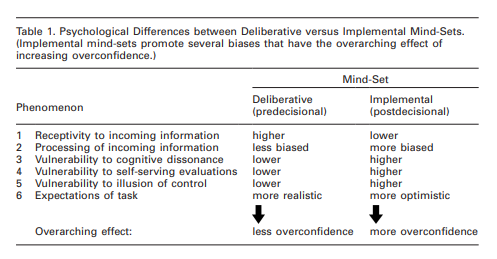The Rubicon Theory of Social Media
Social media's stated function as a vehicle for relationship and connection is generally inaccurate. Instead, social media's structure most often causes users' mindsets to become more aggressive, overconfident, and less rational.

In 2011 Dominic D.P. Johnson and Dominic Tierney published an essay titled "The Rubicon Theory of War: How the Path to Conflict Reaches the Point of No Return." In their essay they pull from a pre-existing body of psychological research on decision-making, and particularly from the "Rubicon model of action phases" described by Hekhausen and Gollwitzer .
This body of research noted that "The simple act of committing to a decision altered their assessment of the probability of success" and noted a "remarkable switch in people’s cognitive processing before and after making a decision" (page 13).
Deliberative and Implemental Mindsets:
In their essay Johnson and Tierney discuss two key mindsets—deliberative and implemental:
A “deliberative” mind-set dominates the predecisional phase, when options and possible outcomes are weighed and compared. An “implemental” mind-set dominates the postdecisional phase, when the focus shifts to carrying out the chosen course of action.
Johnson and Tierney applied this research to mindsets leading up to conflict and war, but it also applies to interactions on social media: broadly, social media interactions are conducted out of an implemental mindset, not a deliberative mindset.
Here is the graphic used by Johnson and Tierney to explain the difference between Deliberative and Implemental mindsets:

Mindsets in Social Media
In most cases by the time that people post on social media they have 'crossed the Rubicon.' By presenting their opinion to a broad array of followers, they have shifted into an implemental mindset rather than a deliberative mindset.
If most interactions on social media occur out of an implemental mindset, not a deliberative mindset, then social media's stated function as a vehicle for relationship and connection is inaccurate. Instead, social media most often causes users' mindsets to become more aggressive, overconfident, and less rational. This phenomenon is a function of the very structure of social media, and cannot be resolved by any quantity of quality controls or community guidelines.
Please note I am not saying that relationships cannot be conducted or created over social media, but that social media is primarily and fundamentally a platform for conveying one's views to a crowd that is larger than one's relationships, and as a result triggers an implemental mindset across a broad base of users.
Listen to how Johnson and Tierney describe each phenomenon, and consider interactions you have recently observed on social media (emphasis mine):
Receptivity to New Information:
Actors in an implemental mind-set adopt a kind of “tunnel vision,” paying more attention to the tasks with which they are occupied and being less receptive to other information received in the meantime. In particular, they display a reduced receptivity to new information that may question the desirability or feasibility of the chosen goal. Instead, they seek information that supports the choice already made.
Processing of Information:
In addition to being less receptive to new information, actors in an implemental mind-set tend to process the information they do receive in a selective and one-sided way, supporting the course of action in which they are already engaged...people become biased and overoptimistic in an implemental mindset.
Vulnerability to Cognitive Dissonance:
Actors in an implemental mindset are also prone to cognitive dissonance, where information that contradicts a cherished or established belief generates psychological discomfort or “dissonance.” As a result, people subconsciously try to make contradictory information fit their existing beliefs, or they avoid situations that may increase dissonance, or both.
Vulnerability to Self-serving Evaluations:
The transition from deliberative to implemental mind-sets is also associated with a shift from more objective views of one’s capabilities to self-serving illusions...Subjects in an implemental mind-set, however, are especially prone to overly positive self-evaluations and are more likely to report positive attributes such as leadership ability or intellect
Vulnerability to Illusions of Control:
Actors in an implemental mindset show increased vulnerability to the “illusion of control,” which refers to the tendency to believe that one can control events, even if they are inherently uncontrollable...People in implemental mind-sets are also more likely to perceive themselves to be invulnerable to general everyday risks—even those that can be uncontrollable such as disease or accidents.
Expectations of Task:
Actors in an implemental mind-set are also more optimistic about the likely outcome of tasks...Studies have shown that subjects in implemental mind-sets are more likely to opt for overly difficult tasks, overestimate their probability of achieving these tasks, and make fewer references to past failures.
Each of these elements of the 'implemental mindset' is so widespread across social media as to be an inherent part of social media platforms.
Social media's one-to-many structure is fundamentally flawed. These flaws impact users' mindsets to make them overconfident and irrational, and cause and expand social fractures at a scale that exceeds the ability of relationships to heal.
Photo by Alois Komenda on Unsplash